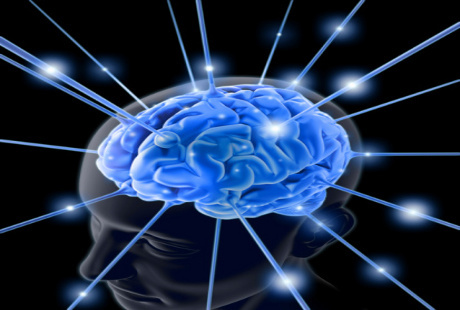 |
| illustration |
If want to delay senile, people were encouraged to diligently perform mental exercises such as playing crossword puzzles or sudoku as well as sports. However for the first time a new study claiming find the key to ageless who are in the brain.
Part of the brain was named the hypothalamus is said can speed up or even slow down the aging process in mice and if this also ascertained occurs in humans then the these findings can be potentially slow down the emergence of health problems associated with accretion the age, at once increasing a person's life span.
"Not many people understand how the mechanisms of aging itself. Was that the aging process involves changes in passive nan garbled on tissues or organs individual, or is controlled centrally by a single organ; or both occur simultaneously," said researcher Dr. Dongsheng Cai, an expert in molecular pharmacology from Albert Einstein College of Medicine, New York.
During this time the hypothalamus, organs sized as big as almonds located on the inside of this brain, is known only in charge of controlling body functions are important, including the process of growth, reproduction and metabolism. But Cai and his colleagues have found that the immune system pathway exist in the hypothalamus apparently also plays a role in controlling the aging process.
Generally, the immune system is only there to prevent infection or organ damage, but a number of other studies found existence a link between inflammatory changes with health problems associated with accretion the age such as cardiovascular diseases and neurodegenerative diseases. It's just that until now never known to changes able to trigger is actively aging.
To make sure it, Cai and his colleagues investigated the role of the hypothalamus in the aging process in mice. In particular this team is studying a complex protein is called nuclear factor kappa-light-chain-enhancer of activated B cells (NF-B), which the central role in the inflammatory process.
Then the researchers showed that activation of the NF-B pathway in rat hypothalamus turned out to can accelerate aging in these animals. This is demonstrated with the decrease in strength and size of mice muscles, decreased skin thickness and a decrease in the ability of studied on the rodent it. Activation it also resulted in of the aging process throughout the body, which in the end shortens the life span of mice.
Conversely, when the researchers inhibited NF-B pathway it, these mice experience a slowdown aging and can live 20 percent longer than mice that did not undergo the experiment.
Nevertheless, activation of NF-B pathway also resulted in decreased levels of gonadotropin-releasing hormone (GnRH) or compound-producing nerve cells, accompanied with decrease in the development of new nerve cells. "In fact, in addition to regulating the reproduction process, GnRH is also considered important to maintain youthfulness," said Cai.
At the time researchers injected GnRH into the hypothalamic mice, these thing encourages the production of nerve cells at once slow the aging process. Own research team gave daily injections of GnRH in old mice during some certain period, and then found that the injection it can slow cognitive decline related to aging process.
From there, researchers concluded if GnRH therapy can potential for slow the progress of or delay the appearance of aging-related health disorders with accretion the age. "In other words intervene in the immune response in the hypothalamus can be considered as a promising new approach to slow aging," said Cai.
This study has been published in the journal Nature.








No comments:
Post a Comment